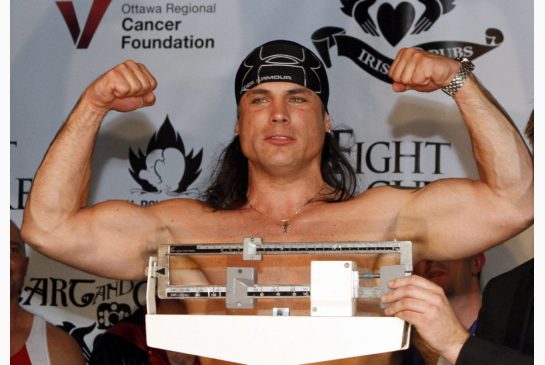So the three miscreants are gone, finally; Senators Mike Duffy, Pamela Wallin and Patrick Brazeau, are suspended from the upper chamber without pay for the duration of this parliamentary session, likely two years, just as Prime Minister Stephen Harper had demanded. The votes weren’t even close. Victory!
Except that it isn’t, really, any kind of victory.
For clues as to why, let’s examine Canadian Conservatism today from the point of view of a voter from, say, southwestern Ontario. We look to these folks because they are at the heart of the East-West coalition that propelled Harper to a majority in 2011. These are, as a rule centrist pragmatists; people who supported premier Mike Harris’s provincial Tories back in the day – until they didn’t.
They are represented in cabinet by figures such as Finance Minister Jim Flaherty, MP for Whitby-Oshawa. He was a scrapper at Queen’s Park in the Harris days; within Harper’s circle he comes off as almost avuncular. Or there’s Diane Finley, MP for Haldimand Norfolk, the minister of public works. More often than not, when asked a question in the House of Commons, she tries to answer. There’s Lisa Raitt, MP for Halton and minister of transport. Amid the din of imbecilic partisanship, Raitt has often stood out as a thoughtful presence.
There are other Conservatives, in and out of cabinet, from across Canada, who are not directly implicated in the Senate mess, had nothing to do with creating it, are not responsible for the PMO-generated strategy for handling it and are still trying to do their jobs despite the daily fracas in “the zoo,” as one Conservative MP put it to me.
Then, there’s Paul Calandra – MP for Oak Ridges-Markham, northeast of Toronto, and parliamentary secretary to the prime minister. He could be among the group mentioned above. He isn’t. It may well be that, like some who take on the “enforcer” role in the NHL, Calandra could skate, pass or score goals, if he wasn’t doing this job. We don’t know, because he has transformed himself into a caricature. His homespun, silly homilies – featuring his children, his parents, the family pizza shop – are already legendary on Twitter. He’s bombing.
But here’s the thing: Calandra’s problem extends well beyond his little tales. His non-answers, counter-attacks, deflections and confabulations appear especially ridiculous. because the basic position he’s defending is untenable. It’s indefensible by opposition standards, obviously, but also when measured against the small-c conservative moral standards the government purports to uphold. Thus, Opposition leader Tom Mulcair’s attack in the House of Commons Tuesday: “This is his (Harper’s) staff. These are his senators. How long will Canadians have to wait before the prime minister accepts his own responsibility?
Personal responsibility is a core conservative value. It may be the most important conservative value. Individuals, not government, must see to themselves, their families and their communities. Those who go astray, as we’ve heard so often in the talking points about Duffy, Wallin and Brazeau, must be held accountable. And those in charge are generally expected to embrace Harry Truman’s dictum: The buck stops here. The finest modern example of this was U.S. president Ronald Reagan, who said, in taking indirect responsibility for the Iran-Contra affair in 1987: “As the navy would say, this happened on my watch.”
Stephen Harper, from day one of this affair, has taken a quite different approach: Day after day, week after week, he has blamed everyone but himself, and in particular blamed his former chief of staff, Nigel Wright. This makes many Conservatives uncomfortable: No one who knows Wright believes that, if he did indeed keep Harper in the dark about his $90,000 payment to Duffy, it was for any reason other than to protect the PM politically. However misguided and wrongheaded that was, it was an act of loyalty. Harper has repaid it with disloyalty.
That leads to this corrosive (to the Conservative party) conclusion: In his personal behavior, Stephen Harper is not a true conservative, at least not in the way most conservatives like to view themselves. He’s something different.
In this light, Harper’s unusually emphatic denunciation of Wright in the House of Commons on Oct. 29 is the low-water mark of this saga — the point at which he crossed the line. And his battle cry at the Calgary convention, “I couldn’t care less what they say, ” was the moment, possibly, when the clock began ticking on a Conservative succession. Whatever they may say publicly, his colleagues understand they can’t hold Canada just with the hard-core 30 per cent.
In other words, the manner of the ousters of these three senators, far from helping the PM’s cause, has reinforced the opposition narrative about him; that he is overly fond of control, with a vengeful streak, and set in his ways. This locks him ever further behind the barricades. It’s difficult to discern a recipe for re-election, let alone a second majority, in this.
Michael Den Tandt: Senators’ expulsion reinforces the narrative of ‘angry Harper’































Laissez un commentaire Votre adresse courriel ne sera pas publiée.
Veuillez vous connecter afin de laisser un commentaire.
Aucun commentaire trouvé